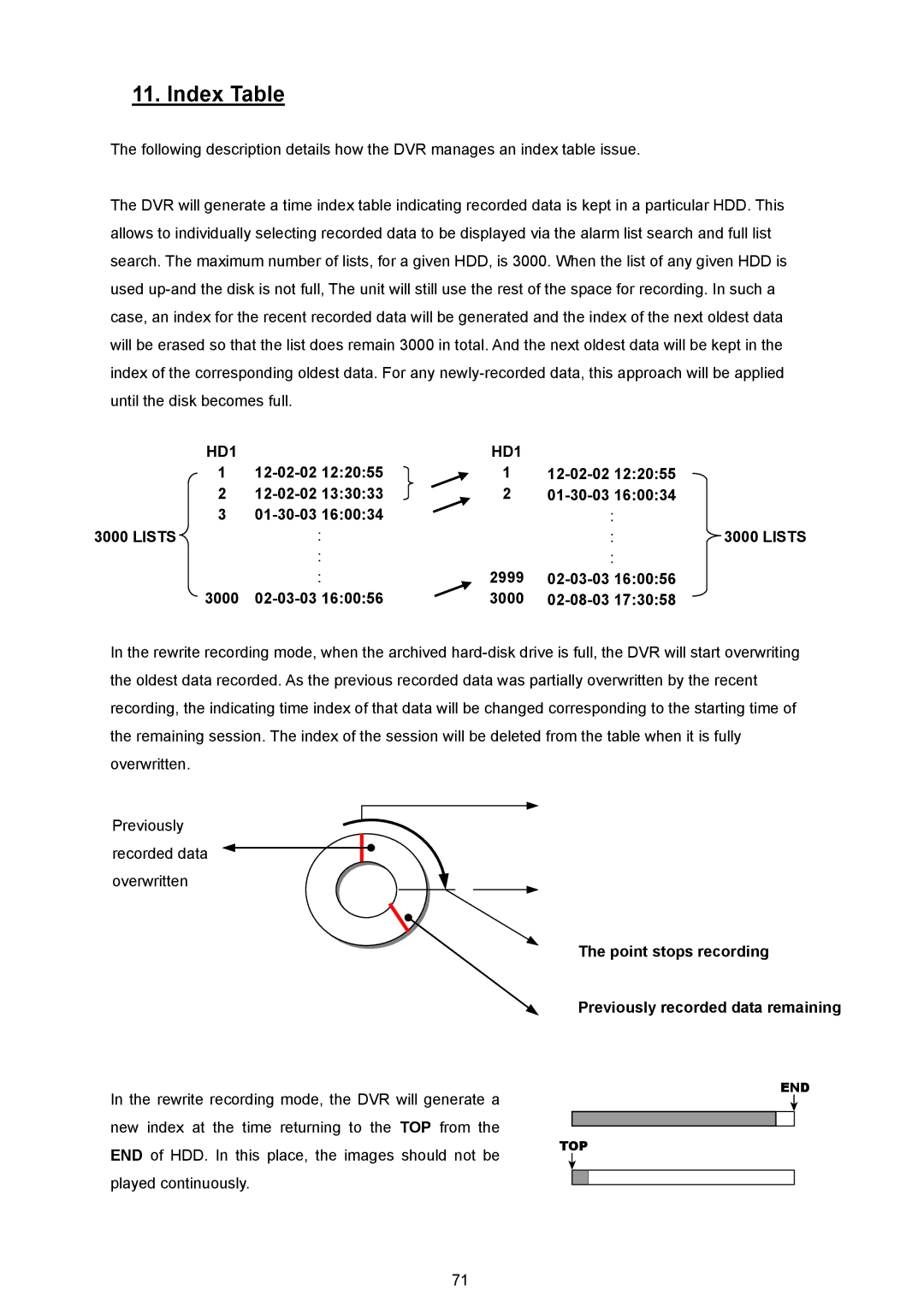
11. Index Table
The following description details how the DVR manages an index table issue.
The DVR will generate a time index table indicating recorded data is kept in a particular HDD. This allows to individually selecting recorded data to be displayed via the alarm list search and full list search. The maximum number of lists, for a given HDD, is 3000. When the list of any given HDD is used
HD1 |
| HD1 |
|
|
1 |
| 1 |
| |
2 | 2 |
|
| |
3 |
| : |
| |
3000 LISTS | : |
| : | 3000 LISTS |
| : | 2999 | : |
|
| : |
|
| |
3000 | 3000 |
|
|
In the rewrite recording mode, when the archived
Previously recorded data overwritten
The point stops recording
Previously recorded data remaining
In the rewrite recording mode, the DVR will generate a |
|
|
| END | ||
|
|
|
|
| ||
new index at the time returning to the TOP from the |
|
|
|
|
| |
|
|
|
|
| ||
TOP | ||||||
END of HDD. In this place, the images should not be | ||||||
|
|
|
|
| ||
played continuously. |
|
|
|
|
| |
|
|
|
|
| ||
|
|
|
|
| ||
71
